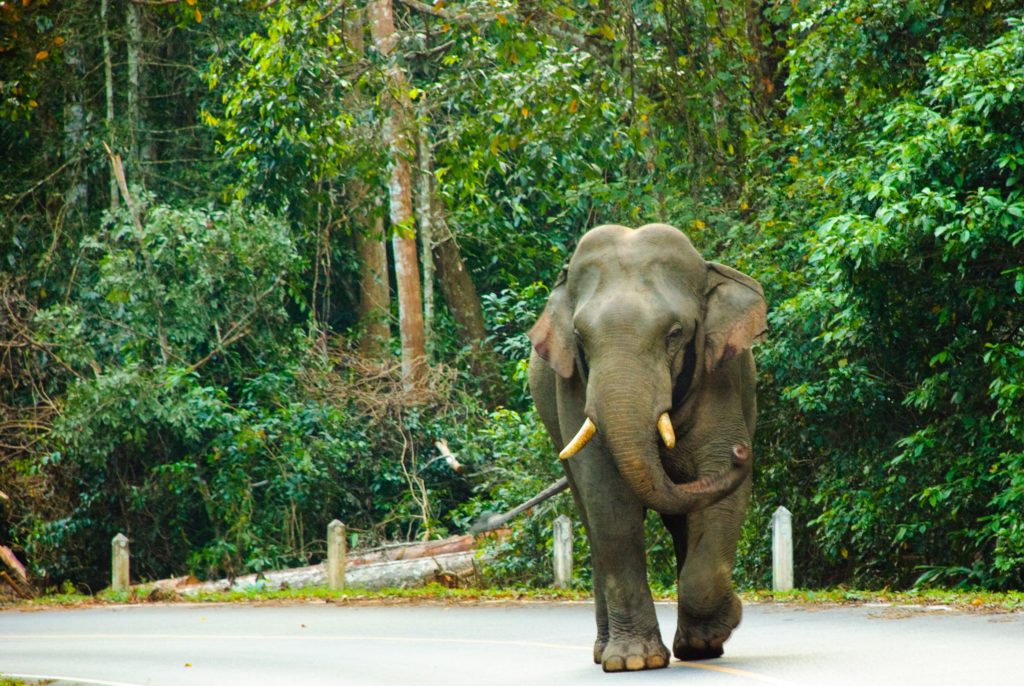The Animals Return

It’s amazing how quickly the ecosystem rights itself if people just stay out of the way. COVID-19 has demonstrated this repeatedly. From Thailand:
Since the coronavirus pandemic accelerated in March, Khao Yai, Thailand’s oldest national park, has been closed to human visitors for the first time since it opened in 1962. Without the jeeps and the crowds, the park’s 300 or so elephants have been able to roam freely, venturing onto paths once packed with humans. Rarely spotted animals, like the Asian black bear or the gaur, the world’s largest bovine, have emerged, too.
“The park has been able to restore itself,” said Chananya Kanchanasaka, a national park department veterinarian. “We are excited to see the animals are coming out.”
Pandemic lockdowns have given nature a breather all around the world, bringing animals to unexpected places. Cougars toured the deserted streets of Santiago, the Chilean capital. Wild boars have strolled through the lanes of Haifa, Israel. Fish catches off Vietnam are teeming again.
In Thailand, nature rebounded quickly, too. In late April, a herd of about 30 dugong — a relatively rare marine mammal — showed up off a cape once crowded with tourist boats. Leatherback turtles and blacktip reef sharks have returned to other holiday hot spots, too. (In other places, elephants and monkeys that normally play a part in the tourist trade are suffering, however.)
The reprieve for Thailand’s wildlife has provoked a debate in a country where the bond with nature has long been framed as one of domination, either the jungle consuming people or people consuming the jungle.
Beyond the pillaging of its own rain forests, Thailand is a key way station on global wildlife trafficking routes, with horns, tusks and scales from as far away as Africa making their way to China.
Wild elephants from the region’s forests are trapped and mentally broken down to perform tricks for tourists. Poaching and logging are rampant in Thailand.
In 2018, a Thai construction tycoon was found in a wildlife sanctuary west of Khao Yai with a cache of weapons and the remains of a black leopard, a barking deer and a pheasant. A leopard’s tail was discovered in a soup pot.
One could solve a lot of our wildlife extinction problems with some proper management, but that would require actually keeping humans out of places entirely, or at least minimize their presence. So instead, we will just rev up the sixth extinction once this is over.


